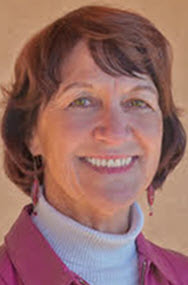 By Mary McPhail Gray
By Mary McPhail Gray
NVW Board Chair
“Please don’t tell my parents!” exclaimed a teenager who had just revealed he was thinking of suicide.
The NVW clinician who listened is in fact mandated to report to the parents when such desperate thoughts are revealed. Yet this clinician—experienced with youth who have shared their fears knew that too often parents may make the wrong response. It is terrible news to hear—and it needs a response that is not immediately easy.
Typical responses by parents include to become angry with the youth—berating or yelling at her so that she cowers and closes down. Another response is to declare suicide a sin—which will be punished by God and the church. A third response is to downplay or belittle their youth by saying, “Oh that’s not a big deal—you can handle this.” In each case, the youth feels shut down, not taken seriously.
“Youth know what they are feeling,” commented the clinician. “Parents must just listen—as hard as that is—just be quiet and really listen to their child.”
Many times, the youth supported by NVW clinicians report that their parents simply do not know anything about their child’s thoughts and fears. Admittedly, parents are dealing with their own fears and anxieties. The National Institutes of Health reported in 2016 that one third of both teens and adults in the United States suffer from anxiety.
Anxiety has now replaced depression as the most common reason college students seek counseling. The American College Health Association reported that in 2016 sixty-two percent of all college students reported at least one period of “overwhelming anxiety.” Nationally, in the last ten years, the number of hospital admissions for suicidal teens has doubled.
How can a community respond?
We need to first acknowledge that anxiety is a serious mental health issue. While sometimes co-occurring with depression—depression is often seen as the more serious mental health diagnosis, and anxiety may not be identified. Anxiety may result in a youth being very quiet—but struggling alone with all the fears and demons inside.
And in Taos, we have experienced suicides among our youth. National data show that youth who are genuinely in dangerous situations need to be supported and taught coping behaviors that are different than the classic definition of anxiety—which stresses the unrealistic view of stressors and suggests that a youth needs to be more realistic about their situation.
Where youth are living in environments of violence and neglect, their anxiety and depression are justified. In Taos, youth who have experienced violence, poverty and neglect in their families often feel hopeless. They are often failing in school—and without adequate school budgets to actually support them—they end up with additional work and no feelings of hope for the future.
This month, a teacher at Taos High School died unexpectedly—and the news reverberated through the youth community. They built an altar in her room and are planning a memorial to express their grief. They hope her family will join them for the memorial.
And youth are beginning to say—with the national scene so frightening and discouraging —why should we believe the future will be positive and hopeful?
So we need to listen—and to give youth their voices. Does the faith environment let them speak honestly? Do public forums on local problems include the voices of youth? Do they have a safe place to reveal their truths?
Taos Alive has spearheaded an effort to establish a youth center where youth can share and lead discussions and participate in safe activities that establish positive connections. The Interfaith/Intercultural Alliance of Taos will present a December program for the public on listening to youth voices.
We are the adults in the room—we need to listen—to love—to care enough to make youth feel they are precious and respected and heard!
Nonviolence Works has the largest staff of behavioral health professionals in northern New Mexico. Contact us at 575-758-4297 or www.nonviolenceworks.us
Mary McPhail Gray is the board chair of NVW and can be reached at mcphailconsulting@gmail.com and 575-779-3126.

